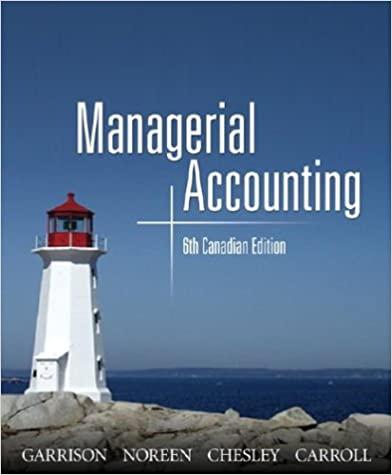The Ethical Dilemma at Deegan Chemicals Inc. Submission date: See the syllabus Lila Jones had sought out her old friend, Daniel Murphy, to discuss her employment situation. Lila and Daniel had both graduated in 2008 from Mackenzie King University, and then studied together to attain their CMA designations in 2010. Soon thereafter, Daniel was promoted quickly within his division of a large multinational auto supply company, and now held the position of vice-president/controller. Lila, on the other hand, had temporarily removed herself from full-time employment in 2012 to raise her young daughter. She kept herself uptodate professionally and handled the occasional short-term consulting assignment. Six months ago, Lila had reentered the workforce, her return accelerated by the fact that her husband, David, had been stricken by a debilitating illness. It had surprised Lila somewhat that she was able to land a position quickly as controller and ofce manager for Deegan Chemical Inc., a small, privately-held producer of specialty chemicals used in testing labs and other manufacturing rms. Deegan was a relatively new and growing company with innovative ideas, and Lila was pleased and excited to have had the good fortune to join its management team. Today, however, meeting with her CMA colleague and trusted friend, Lila was troubled. "I don't know what to do, Daniel. I thought I was taking on an ideal position, an emerging company, with exible working hours, decent pay and a good benets package to help with David's medical expenses. But the situation sure turned sour quickly. I really don't know who to talk to. In fact, Daniel, I'm not sure that I should be talking to you". "Nonsense," said Daniel, "You know you can count on me after all we've been through together. Tell me what's going on." "Well," said Lila, "Initially, things were going very well for Deegan Chemical. None of the larger companies were interested in the small niche market that Deegan had carved out. Sales grew rapidly and, because of our success, Superior, the big integrated chemical conglomerate, set up a subsidiary to compete with us. Since then, we've taken a real hit in sales and prots. Our business is down 30 per cent, and the new plant that we built in Hudson three years ago is operating at 50 per cent of capacity." "That's certainly not good news," said Daniel, "Have you got your expenditures under control?" "I gather we were never very good at cost control and internal controls were virtually non- existent. When we were growing so quickly, sales were more important than costs. When things got tough, they dismissed my predecessor and hired me. They told me that I could have free rein to implement whatever I thought was necessary. And boy, are some changes ever necessary! Our senior staff really don't know the difference between personal and corporate spending, and I think our sales and marketing expenses are double what they should be. It will







